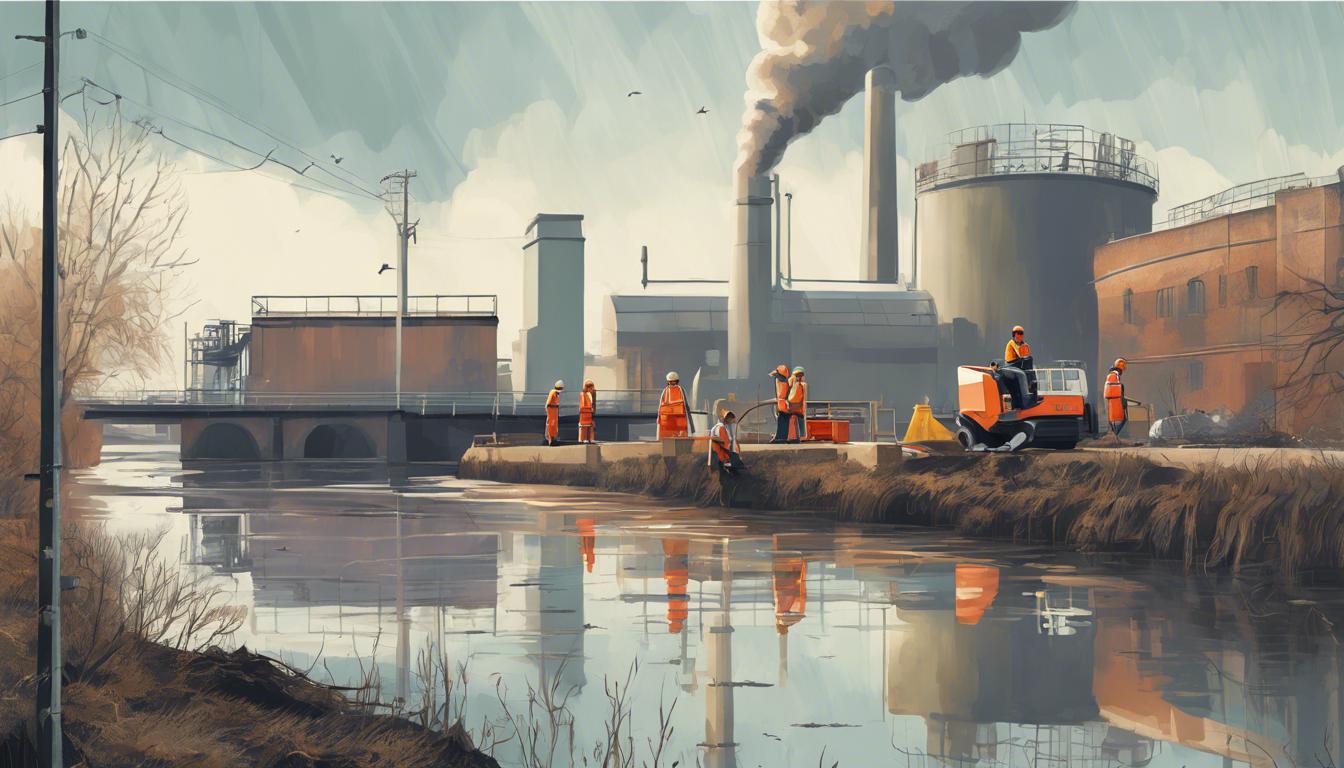Residents in Oxfordshire are alarmed by continuous sewage discharges into the Thames, with Thames Water pledging upgrades amid wider concerns over the state of UK waterways.
Residents of a village in Oxfordshire have aired their concerns after Thames Water reportedly discharged raw sewage into the Thames River for 53 consecutive days, significantly impacting the local ecosystem near Mill Brook. The discharges, attributed to asset maintenance issues at the South Moreton sewage treatment plant, have been ongoing for over a month and a half, according to Thames Water data. This situation has raised alarms among locals over the deteriorating health of the river, once home to a vibrant array of wildlife.
In response, Thames Water has acknowledged the problem and announced plans to upgrade the South Moreton sewage works by 2026 to mitigate the risk of untreated discharges. The company emphasizes its commitment to improving river health and increasing transparency in its operations.
The incident comes at a time when water workers across the UK report increased verbal abuse and even physical assaults, amid public outrage over widespread sewage contamination. According to a survey by the GMB union, one in three water industry employees has faced hostility, stemming partly from frustration over sewage dumping. The survey also highlights concerns about the under-reporting of sewage spills and inadequate infrastructure.
The backlash extends beyond local incidents, with sewage spills into rivers and seas across England reportedly doubling in the past year. Critics argue that English water companies, predominantly owned by international investors and private equity funds, have prioritized dividends over environmental stewardship. Over £23 billion in dividends has been paid to shareholders since 2010, at a time when significant investment in water infrastructure is desperately needed.
Amidst these developments, the Environment Agency has introduced a platform for water company whistleblowers to report environmental violations, aiming to tackle sewage pollution more effectively. The water regulator, Ofwat, now possesses enhanced powers to ensure that companies’ dividends are tied to their performance in serving customers and protecting the environment.
The government and regulatory bodies are being urged to take decisive action to address these systemic issues within the water industry, emphasizing the need for substantial investment in infrastructure and tougher measures against companies failing to prevent environmental harm.













